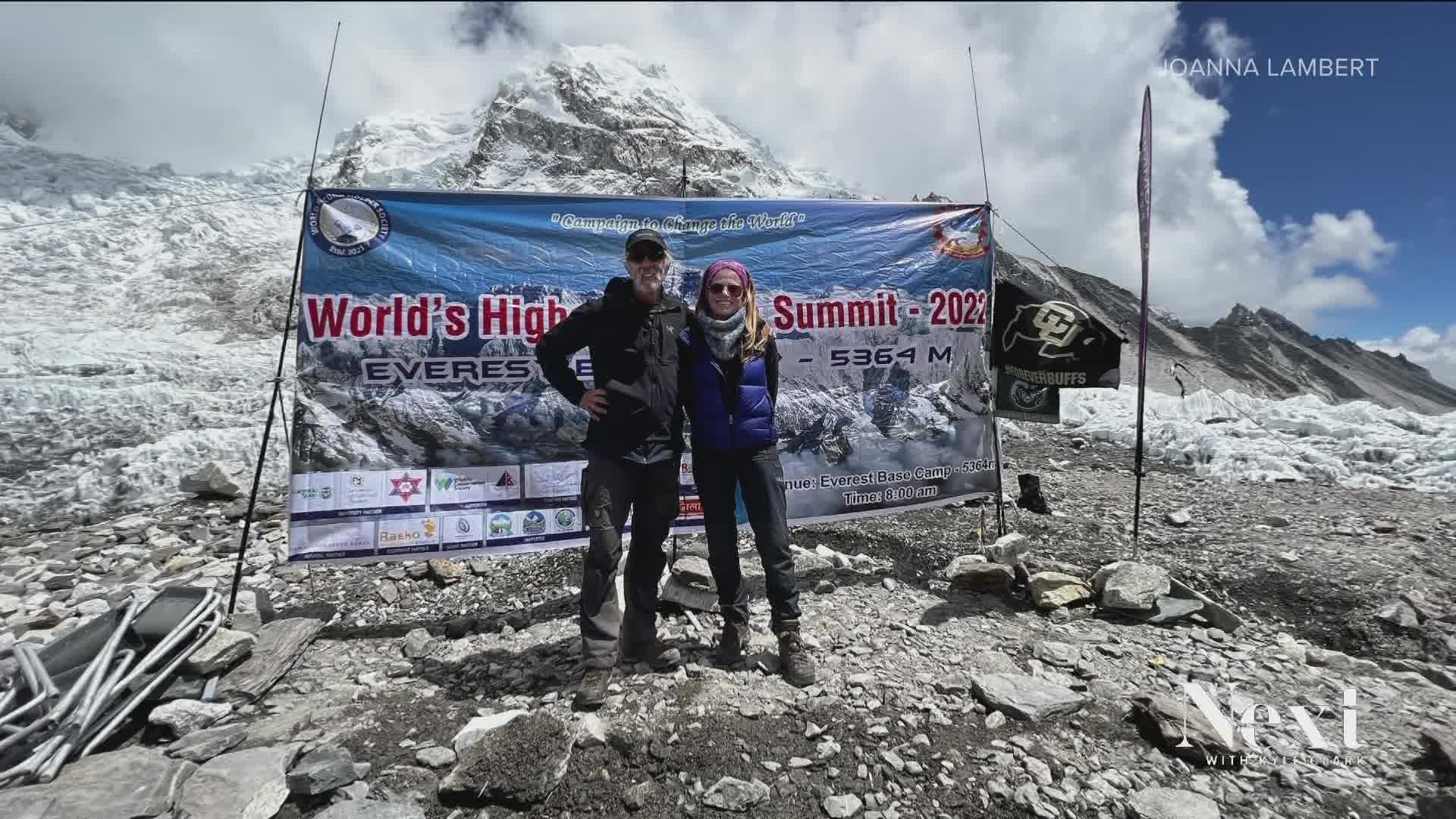BOULDER, Colo. — As she delivered her address, boulders crumbled down the mountain, landslides went off in the distance, and avalanches were triggered all around Joanna Lambert.
The University of Colorado Environmental Studies professor and modest team of guides, scientists and filmmakers trekked to base camp at Mount Everest for the World's Highest Climate Summit earlier this summer.
"The idea was being out there on this dramatic landscape and under wildly differing circumstances than where climate summits normally take place," Lambert said.
Her research into wild animals and wild places takes her all around the world, but the Himalayas were special.
"Literally breathtaking(laughing), but also figuratively breathtaking. Astonishingly beautiful," Lambert said. "It’s like you’ve landed on the moon it’s unlike any place I’ve ever been."
The goal of the summit was to call attention to the impact of climate change on high altitude locations. They spent more than an hour and a half with Nepal's vice president, speaking about the United States' role in contributing to and working toward solving the climate crisis.
"Climate is making things more challenging not only for wildlife but for humans that are living in habitat that wildlife are needing to exploit," Lambert said.
That's true not just in the mountains surrounding Everest, she said, but right here in the Front Range.
"We do not need to go to the Himalayas where there's extraordinary conflict with wildlife such as snow leopards, etc. We can just turn around into our own backyard and see that it's happening," Lambert said.
She said bears that were already being drawn to towns like Boulder are even more likely to come into contact with humans as wildfires shrink their grazing habitat.
But it's not too late to do something, Lambert said.
"It’s increasingly easy to become paralyzed in the world we live in," she said. "I think if we flip it around, if we flip the message around and remind folks of just how much we have left that can reinvigorate our passion for working towards solutions."
She hopes people take time to experience awe in the natural world, and says it doesn't have to be as hard as hiking up 18,000-feet into the mountains a world away.
"Even if it’s going out bird watching or observing how animals like coyotes have been able to make a living in a human-dominated world," she said. "It’s not over yet and there’s still so much more to fight for and I feel dedicated as a scientist but also as a citizen in that regard."
SUGGESTED VIDEOS: Colorado Climate

